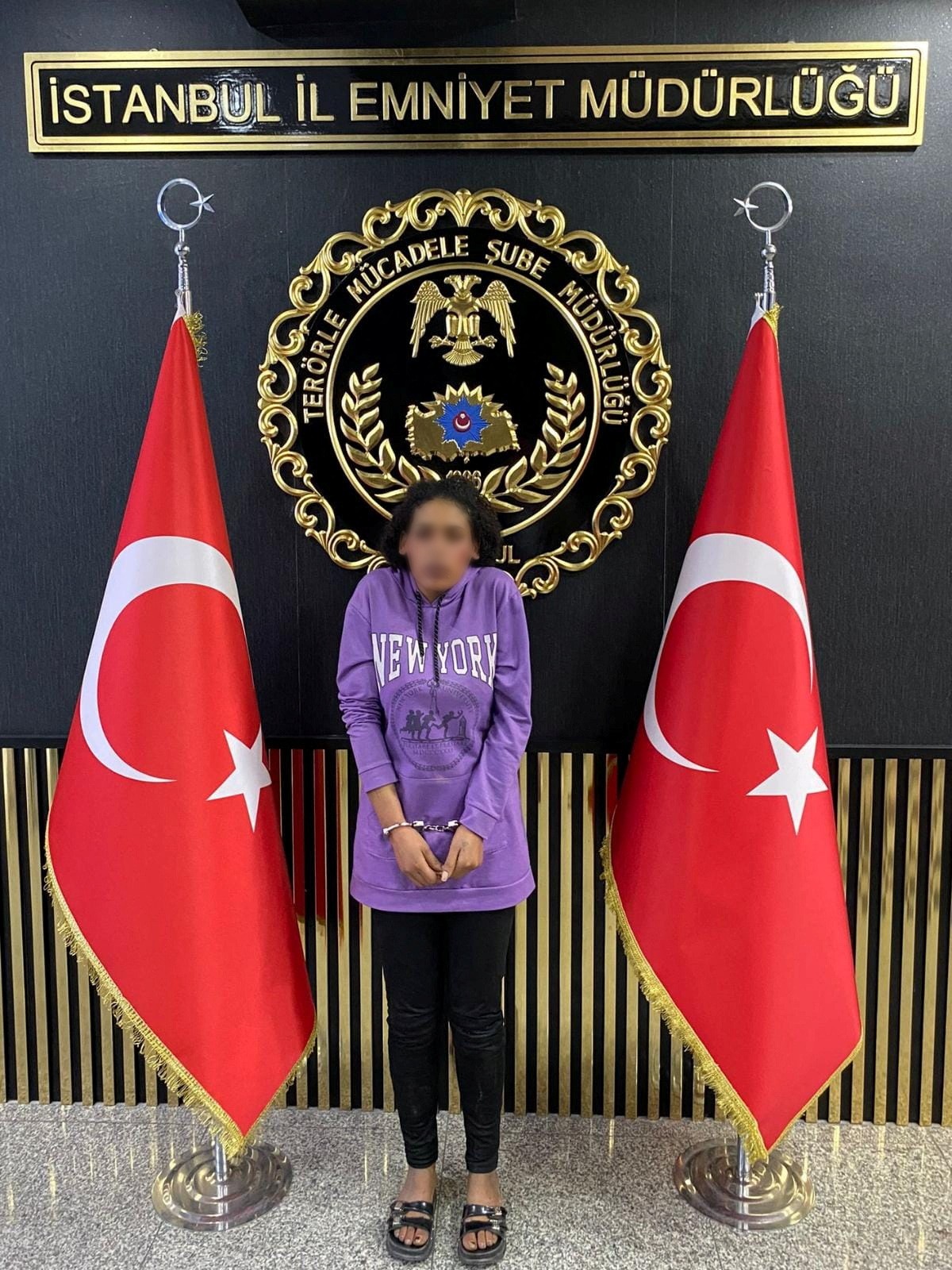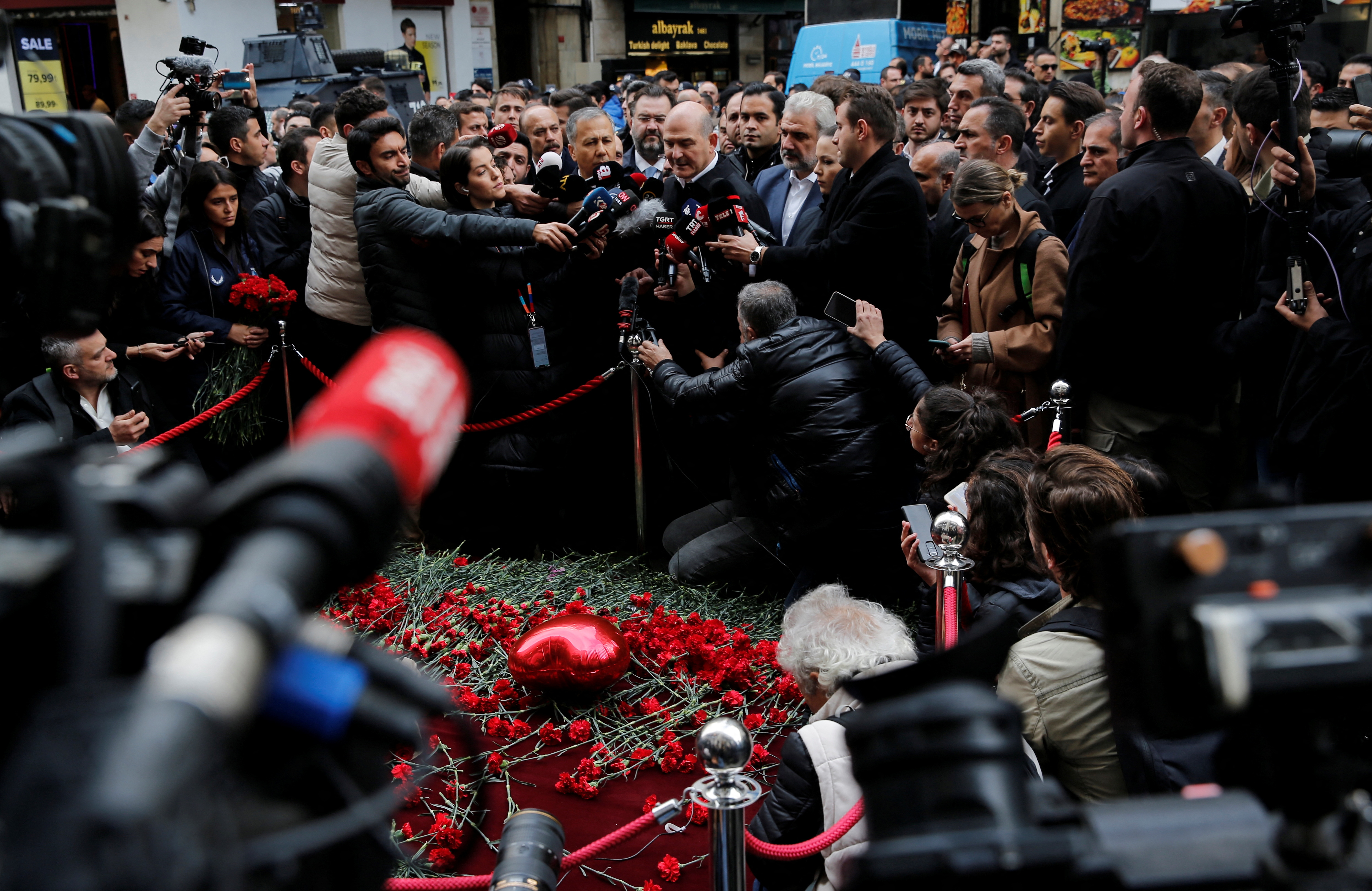Woman Who Planted Bomb In Istanbul That Killed 6 People Arrested By Turkish Police
46 other suspects have also been detained as part of an investigation into the attack.
Turkey blamed Kurdish militants on Monday, 14 November, for an explosion that killed six people in a busy Istanbul shopping street, and police detained a Syrian woman suspected of having planted the bomb among a sweep of 47 arrests
In an initial questioning, the woman said she was trained by Kurdish militants in Syria and entered Turkey through northwest Syria's Afrin region, the police said.
Istanbul police named the suspected bomber as Ahlam Albashir, a Syrian national, who was detained in an overnight raid in the city's Kucukcekmece district.
Interior Minister Suleyman Soylu said the Kurdistan Workers Party (PKK) and the Syrian Kurdish YPG militia were responsible for the blast on Istiklal Avenue on Sunday, 13 November, an incident that recalled similar attacks in years past.
Soylu said the order was given in Kobani, a city in northern Syria, where Turkish forces have carried out operations against the YPG in recent years.
Ankara says the YPG is a wing of the PKK. The United States has supported the YPG in the conflict in Syria, stoking friction between NATO allies.
An undated handout picture released by Turkish police shows an unidentified blast suspect arrested in Istanbul, Turkey.
Image via Turkish Police/Handout via ReutersAccording to Istanbul police, Albashir said during questioning that she was trained by Kurdish militants and entered Turkey through Afrin, another northern Syrian town
Earlier television news reports showed images of a person, who appeared to be a woman, leaving a package below a raised flower bed in the middle of the avenue just before the attack.
A Turkish official said the possibility of Daesh being responsible for the attack was "not entirely disregarded."
Six Turkish citizens, two members each of three families, were killed in the attack
Interior Minister Suleyman Soylu talks to journalists as he visits a blast site in Istiklal Avenue in Istanbul, Turkey, on 14 November 2022.
Image via Dilara Senkaya/ReutersNo group has claimed responsibility.
Of those wounded, two of the five people being treated in intensive care were in a critical condition, Health Minister Fahrettin Koca said. They were among the 26 wounded still in hospital, while 55 people had been discharged.
The attack sparked concerns that more of such incidents could occur ahead of elections set for June 2023, which polls show President Recep Tayyip Erdogan could lose after two decades in power.
Istanbul has been attacked in the past by Kurdish, Daesh, and leftist militants. A wave of bombings and other attacks began nationwide when a ceasefire between Ankara and the PKK broke down in mid-2015, ahead of elections in November that year.

